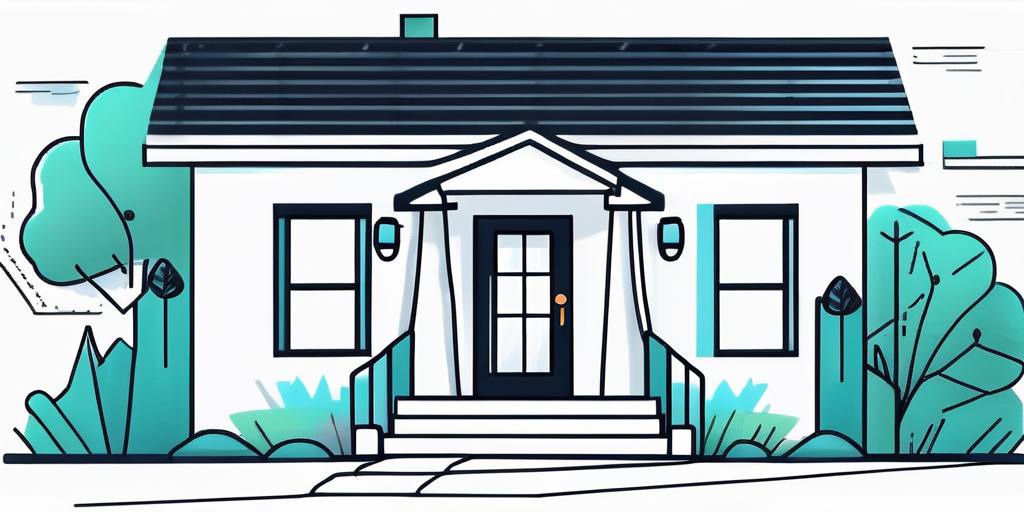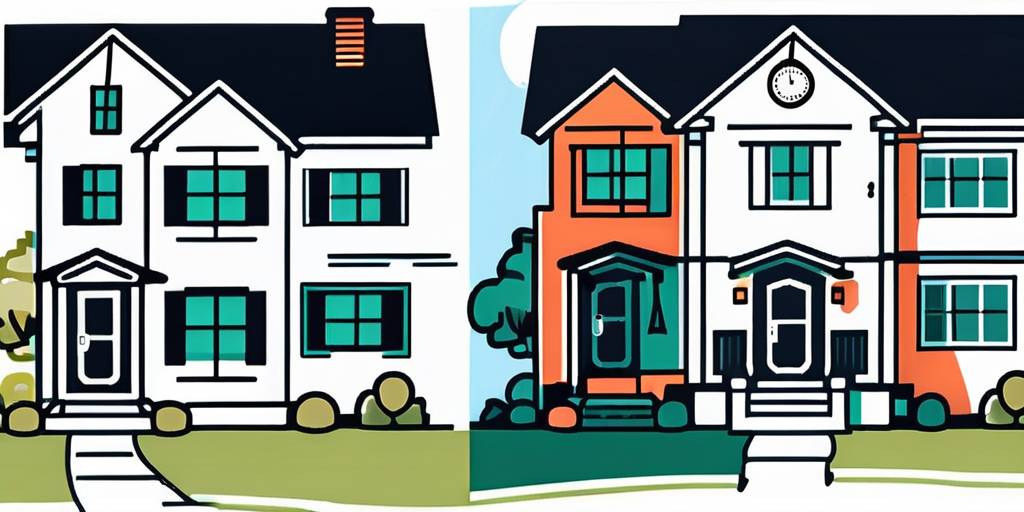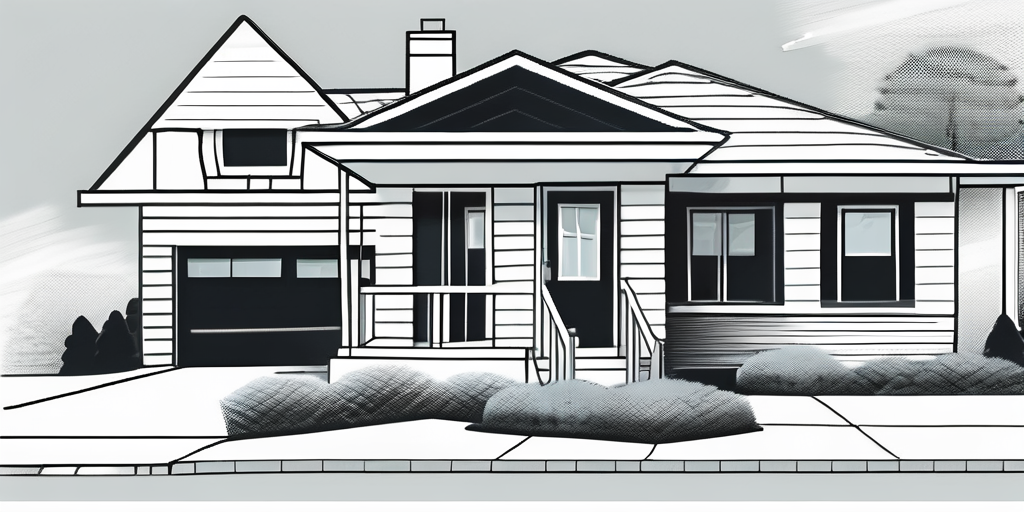Can I Sell Without a Realtor? A Comprehensive Guide

Selling your home can be a daunting task, especially if you're considering doing it without the assistance of a realtor. However, with proper knowledge and preparation, it is entirely possible to manage the process on your own. This guide will walk you through the essential aspects of selling your home without a realtor, from understanding the home selling process to tips for successful self-selling.
Understanding the Home Selling Process
The home selling process can be divided into several key stages. These include preparing your home, setting a price, marketing the property, negotiating offers, and closing the sale. Understanding these stages ensures you are well-equipped to handle each step effectively.

Before you begin, it is crucial to familiarize yourself with the local real estate market. For example, if you live in a neighborhood where homes sell quickly, like a suburban area with good schools, you might be able to set a higher asking price. Conversely, in a competitive market where homes take longer to sell, it’s wise to be more flexible with your pricing strategy.
Preparing Your Home for Sale
Preparing your home for sale involves more than just a thorough cleaning. You need to make changes that will appeal to potential buyers. This might include minor repairs, fresh paint, or even landscaping improvements.
Consider a situation where a homeowner decided to remodel their kitchen with modern appliances and granite countertops. This investment led to increased interest and a profitable sale, highlighting the impact of appealing home updates.
Setting the Right Price
Setting the right price is critical to attracting buyers while ensuring you get a fair return. You can use online tools and resources—such as recent sales data in your area—to gauge appropriate pricing.
A homeowner in a recently stabilized market priced their home based on local listings and appraisals, resulting in a sale above their initial expectations. On the other hand, overpricing can lead to stagnation on the market, as seen when a seller did not consider fluctuations in buyer demand.
Marketing Your Property
Marketing your property effectively is vital for reaching potential buyers. This can include traditional methods like open houses, but also digital strategies.
- Creating a detailed listing on websites like Zillow and Realtor.com.
- Using social media channels to showcase your home through photos and videos.
- Hosting virtual tours to attract remote buyers.
In one case, a homeowner successfully sold their property using targeted Facebook ads highlighting the community amenities, which appealed to young families. They gained significant traction by showcasing the home's charm and nearby parks.
Pros and Cons of Selling Without a Realtor
Deciding to sell without a realtor has its advantages and disadvantages. It’s essential to weigh these aspects carefully before proceeding.

Potential Savings from Forgoing a Realtor
One of the primary benefits of selling your home without a realtor is the money saved on commissions, which can typically range between 5% to 6% of the sale price. This can lead to substantial savings if you sell a high-value property.
For example, a home that sells for $300,000 might save a homeowner over $18,000 by not involving a realtor. This saved amount can be reinvested for future projects or moved towards purchasing a new home.
Challenges of Self-Selling
On the flip side, selling without a realtor requires a significant time investment and a willingness to engage with buyers directly. Challenges can include negotiating sales price, managing showings, and legal considerations.
For instance, a seller who was unfamiliar with local regulations faced hurdles during the closing process due to incomplete legal documentation. This situation emphasizes the importance of being proactive in understanding the required paperwork when undertaking a sale solo.
Necessary Legal Documentation for Selling Your Home
When selling a property, you must ensure all legal documents are accurate and complete. Familiarizing yourself with these documents addresses potential liabilities and speeds up the process.

Understanding Property Deeds
The property deed is a crucial document that proves ownership. You need to ensure that the deed reflects accurate and current information and that there are no liens or claims against the property.
A seller once discovered an existing lien which delayed their sale; learning to check these documents beforehand can expedite the selling process.
Disclosures and Inspections
Disclosures are mandatory in many states, requiring sellers to inform buyers of any known issues with the property. Hiring a home inspector before listing can uncover problems that could deter potential buyers.
One homeowner avoided future disputes by addressing issues upfront after a pre-sale inspection revealed a roof that needed repairs. By being transparent, they maintained buyers’ trust and facilitated a smoother sale process.
Negotiating and Closing the Sale
Once you receive an offer, the negotiation process begins, which may involve counteroffers and adjustments to terms.
Handling Offers and Counteroffers
It's vital to remain flexible and open to negotiations. Evaluate each offer carefully, remembering that the highest bid may not always come with the best conditions or closing timeline.
A seller who received multiple offers benefited from the competitive nature of the bidding, negotiating terms that favored their needs, such as an expedited closing date.
Finalizing the Sale: The Closing Process
The closing process involves signing contracts, transferring the deed, and completing all necessary paperwork, potentially with your legal advisor’s assistance to ensure compliance.
In one instance, a seller overlooked securing a licensed closing attorney, which resulted in an oversight that delayed their transaction. Engaging with professionals at this stage can provide peace of mind and protect your interests.
Tips for Selling Your Home Without a Realtor
Successfully selling your home without a realtor requires strategic planning and careful execution of each step involved in the process.
Staging Your Home for Potential Buyers
Staging your home is vital in presenting it in the best light. Consider hiring a professional stager or utilizing your creativity to declutter and rearrange furniture, making the space feel welcoming.
A well-staged home attracted more buyers in a case study, leading to multiple offers within a week. Their touches, such as fresh flowers and curated decor, created an inviting atmosphere.
Utilizing Online Platforms for Marketing
The digital landscape provides numerous platforms for advertising your property. Familiarizing yourself with online listings, local groups, or real estate forums can vastly expand your selling reach.
For example, a seller successfully used Instagram for showcasing stunning visuals of their home, targeting younger buyers who often search for properties online. They engaged with potential buyers through comments, generating excitement around their listing.
Seeking Legal Advice When Needed
Don’t hesitate to seek legal advice, especially regarding contracts and closing procedures. Having a qualified attorney can help you avoid pitfalls and ensure compliance with state and local regulations.
A homeowner who consulted a real estate attorney avoided a costly legal dispute that arose from a misunderstanding during closing. Legal counsel is invaluable, particularly when navigating complex transactions.
Selling your home without a realtor can be a rewarding experience, providing substantial savings and a sense of accomplishment. With the right tools and knowledge, you are equipped to tackle the real estate market independently.





